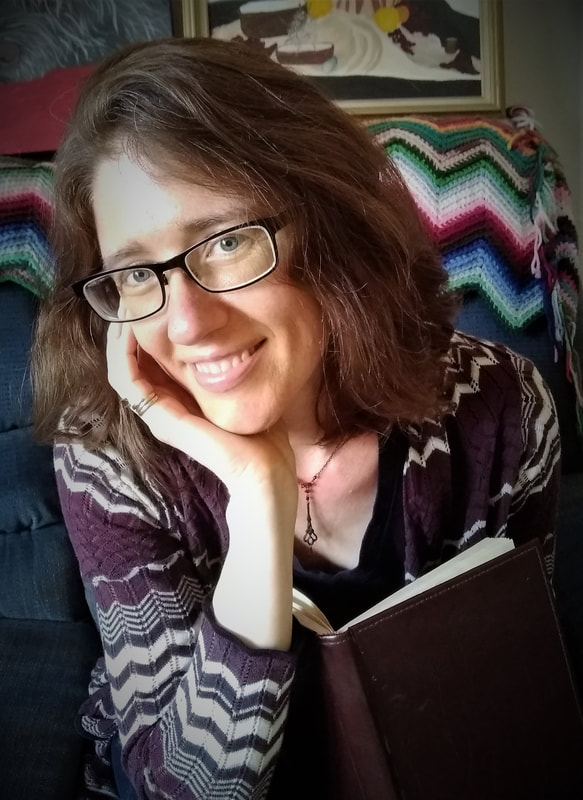|
So, you’ve decided to hire a freelance editor. Whether you’re self-publishing or just want someone to help clean up your manuscript before you submit it to a publishing house or a potential agent; whether you’re writing fiction or nonfiction; or whether you have a blog, an article, or a full-length book, an editor can be a valuable partner in improving your writing and reaching your goals. But there are so many editors to choose from. How do you pick the right one? Finding the right editor is about more than just evaluating their technical skills, which is difficult enough. Here are a few suggestions for what to look for and ask about when deciding if an editor is right for you. They work for you. First of all, remember that you are hiring a contractor. You have a task or problem, and you’re hiring a professional to resolve it. I know it’s hard to remember because you’ve poured your heart and soul into your writing, and it feels very personal. But it’s still a business transaction. That’s not to say that it can’t be a work of passion on both sides. You actually do want an editor who’s passionate about their work. But it needs to be a mutually beneficial arrangement. That means that they need to receive fair payment for the time, effort, and expertise they bring to the project. It’s their livelihood, and no amount of passion for the work puts food on the table. And you need to understand what you’ll be getting for your money and decide if it’s worth it before they start work. You wouldn’t hire a carpenter to build you a new table without making sure what they produce is going to serve your needs. Do they have the technical skills? I love my profession and have immense respect for the amount of skill and expertise among my colleagues. Having said that, though, I also admit that there are a lot of people out there who call themselves editors who really don’t know what they’re doing. Freelance editing is an unregulated field, meaning that, unlike lawyers who have to pass the bar to practice law, there is no certification or licensing required to sell your services as an editor. So, how do you know if the editor you’re considering hiring has more qualifications than just doing well in their high school English class? Most professional editors have at least a rudimentary website with their details and qualifications listed. A bachelor’s degree in English is a good start but neither sufficient nor possibly even necessary, depending on the field they’re working in. Look for specific training or certificates in editing. Are they a member of a professional editing organization, like ACES, EFA, CIEP, Editors Canada, or any one of dozens of other respected organizations? Have they worked for publishing houses? What kind of editing have they done, or what experience do they have? Does their website contain personal recommendations from satisfied clients? Do they provide samples of their work? No one of these criteria is an absolute necessity, but you’re looking for indications that they have training and experience specifically in editing, not just in English. You don’t want someone who just thought editing would be a fun little hobby where they could make a few bucks on the side. You’re hiring a professional to provide a high-quality service that is worth what you’re paying them. Do they have any specializations? There are countless genres out there, and there are nearly as many kinds of editors. If you write medical textbooks, it’s helpful to have an editor with a background or experience in the medical field. And the same could be said for any other genre. Adult fiction and children’s books are nearly as different as fiction and nonfiction. Someone who specializes in cookbook editing needs different skills and understanding than someone who edits fantasy. Developmental editing, copyediting, and proofreading are completely different services, and not all editors offer all varieties of editing services. Many professional editing organizations provide listings of members that you can search by specialization. Whatever you’re writing, there is probably someone out there who specializes in that subject. Or if you’re writing for an audience outside your field and want the perspective of a nonspecialist, there are general fiction and nonfiction editors. The point is to know what you want as far as specializations and to take it into account when hiring an editor. Communication is key. Some editors list a phone number. Others interact primarily through email or messaging. Some respond immediately, while others might take a few days to respond. The mode and manner of communication are less important than you and your editor having a clear understanding and agreement on it. There is no industry standard, just whatever you and your editor decide on. And be specific about expectations. “Occasional updates” doesn’t cut it. If you’re nervous about handing over your baby to a relative stranger and expect weekly progress updates but your editor has the expectation that they’ll contact you from time to time if something comes up, you’ll end up feeling like they’re dodging you, and they’ll feel hounded. If you and an editor have strong communication expectations that you can’t reconcile, it doesn’t mean either one of you is necessarily wrong. It just means that that may not be the right editor for you. *With that said, don’t expect daily updates. There are very few cases where daily check-ins are necessary. Do you connect well? Editing is more than fixing spelling and punctuation errors. A good editor will point out inconsistencies (like a character’s name changing halfway through your novel) or wordy or confusing passages. Depending on the level of editing you agree on, they might even reword some passages. But it doesn’t matter how good the editor is if you don’t share a common vision and understanding of where you want your writing to go and what you want the finished manuscript to look like. And to be honest, some people and personalities just don’t mesh well. You want someone who understands you and your writing and who can explain things to you in a way you understand. At the end of the day, edits are merely suggestions. That’s why editors use Track Changes, so that the author can see the changes made and accept or reject them. Think of your editor as a knowledgeable advisor. Some changes and corrections are obviously necessary and require no explanation, but your editor needs to be able to clearly explain the reasoning behind others if you’re going to make an informed decision. You’re looking for someone who listens to you and explains their recommendations, not someone who expects you to just do what they say because they’re the expert. Do they offer sample edits? Many editors will do a sample edit, usually 500–1,000 words, to give you an idea of what they can do for you. Whether or not they charge for the sample depends on the editor. Some offer free samples, while others charge a small fee as a gesture of the author’s serious intention of seeking editing. Remember that this is their livelihood, and their time and energy are valuable. Also, those who do charge a fee often credit the amount paid toward the final invoice if you hire them to do the full edit. Or depending on the circumstances, they might waive the sample fee altogether And if their editing style isn’t a good fit, it’s better to find out early, before you’ve committed to the full fee.
Editing is a partnership between an author and an editor, and communication and shared goals are so important. So, when you find an editor you might like to work with, look into them, open up communications and evaluate if they’re right for you and your project. But keep in mind that their time is valuable and be respectful of that. If you don’t think they’re the editor for you, politely thank them for their time and move on. If it’s truly not a good fit, you’ll be saving both of you immeasurable stress and headache. Don’t worry. The right editor for you is out there. But like anything truly worthwhile, you sometimes have to do a little digging to find them. Rebecca Miller is a professional copyeditor and general fan of all things having to do with the written word and the English language. You can check out her website at Oakdale Editing or connect through Facebook, LinkedIn, or Email.
2 Comments
|
AuthorRebecca has a passion for helping you fill the world with great literature and making sure said literature doesn't get passed over for the lack of a little editing. Archives
July 2022
Categories
All
|


 RSS Feed
RSS Feed
